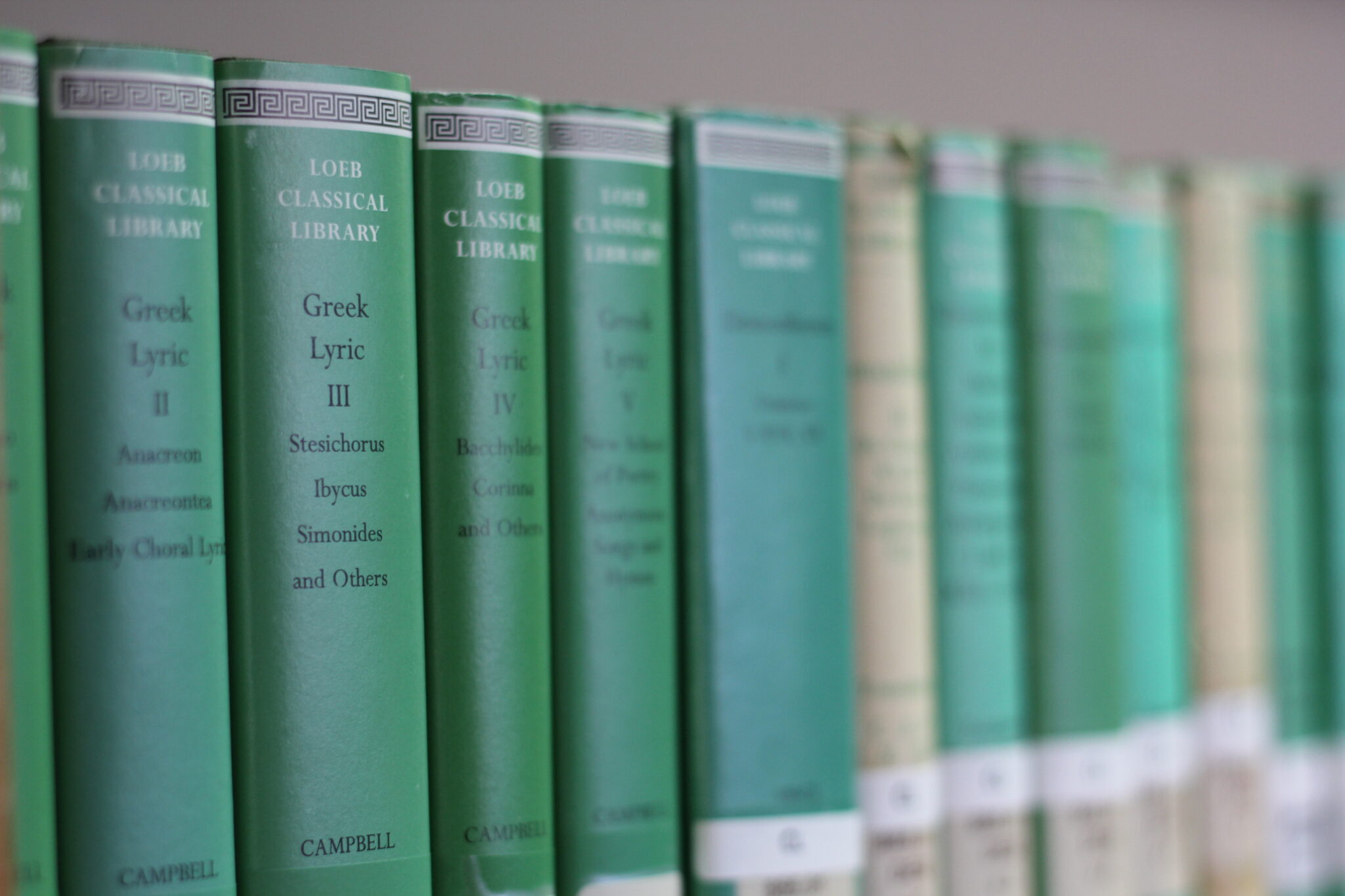
Walking through the library, one’s eye is caught by the rows of little red and green volumes flanking the door to the study space and special collections at the back of the building. Each small, hardback book is numbered and edged with a Greek key pattern in black and white, with the words ‘Loeb Classical Library’ printed on the top of each spine. 2021 marks the 110th anniversary of the Loeb Classical Collection, founded by James Loeb in 1911. There are now 546 volumes in the Loeb Collection, of which the Campion library houses 163.
In honour of Classics Week at Campion, I thought for this Library in Focus feature, we might look at this particular collection. The Loeb Classical Library provides the widest coverage of ancient Greek and Latin literature and for some ancient authors, these are the only texts readily available. Epic and lyric poetry, history, tragedy and comedy, philosophy, letters, oratory, medical and geographic works, and the writings of some Church fathers are all contained in these accessible, beautiful volumes. Latin works are identified by their red covers, and Greek works by green.
Each edition provides a page of the original text (in Greek or Latin) with the opposite page providing an English translation. Each edition also contains an introduction with useful background information. Because of this convenient layout and accessible translation, the volumes are useful not only for Classicists, but for any student who may be consulting primary sources from the ancient world.
Another benefit of the Loeb Classical Collection is that editions are regularly updated with better texts and translations. For example, if you compare the second part of Idyll 1, by Theocritus, from the 1912 edition and the 2015 edition, several translation changes are obvious:
“’Tis, Thyrsis sings, of Etna, and a rare sweet voice hath he.
Where were ye Nymphs, when Daphnis pined? Ye Nymphs, O where were ye?
Was it Peneius pretty vale, or Pindus glens? ‘twas never
Anapus flood, nor Etna’s pike nor Acis holy river.
Country-song, sing country-song sweet Muses
(1912 translation)
“Thyrsis of Etna am I, and sweet is the voice of Thysis.
Where were you, Nymphs, where were you while Daphnis pined away? Were you in the lovely valleys of Peneius or of Pindus? Certainly you were not at home by the great stream of the Anapus River, or the peak of Etna, or the sacred waters of Acis.”
Begin dear Muses, begin the pastoral song.”
(2015 translation)
The library aims to acquire these new editions as they become available to continue expanding the resources of the Classics Collection for staff and students. Recent editions include new Loeb volumes of Euripides, Plato’s Republic, and the letters of Cicero. If you are a student reading ancient literature in a translation prescribed by your lecturer, have a go at reading the Loeb translation alongside it to get a different view!
With thanks to Thomas Flynn, lecturer in classics at Campion.

Keziah Van Aardt
Author
Keziah is the Library Manager and Study Skills Advisor at Campion College. To get in contact, please email k.vanaardt@campion.edu.au or call (02) 9896 9307



